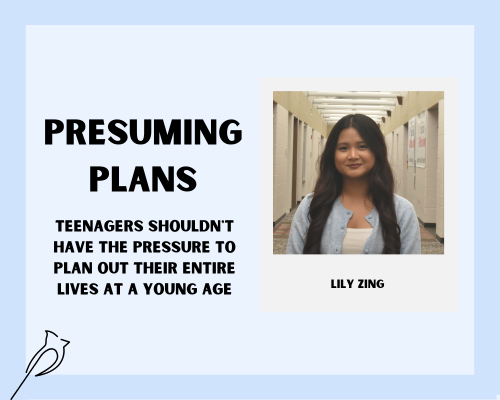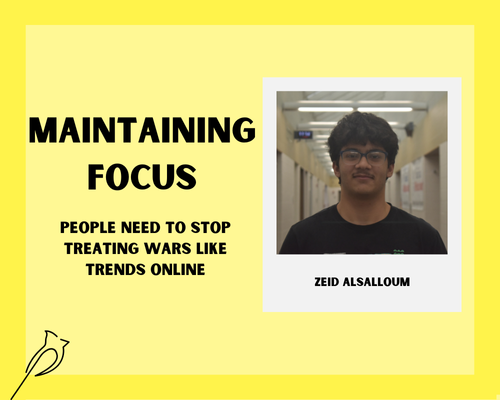Growing w/ Grace
Failing as a leader is still vital for self growth
I can still feel my heart racing when my new Editor-in-chief, Sophie McKinney, came up to me while I was sitting on the couch in room 400. She asked me what felt like such an obvious question at the time, “Grace, would you want to be our Photos editor?”, with her cute, high-pitched, quirky voice. This was the first step in my three-year journey on The Journal where I stepped into my first leadership role, which ultimately led me to my position now.
Although the answer to the question she asked me or when Mr. K asked me to be the next Editor-in-Chief, seemed obvious, I didn’t see the impact failure would play in these positions. Failure is a vital part of growth, but failing as a leader creates new layers of difficulty.
Throughout my three years on The Journal, I have held different positions, gained new relationships and broadened my high school experience to new heights.
Each position led me into a different leadership role to learn from. Having the opportunity to hold these different roles has opened doors for me to gain a new perspective of daily failure and its dire importance to learn and grow. Failure is how we learn as humans.
There are clearly different degrees of failure with some weighing heavier than others. Failure can look ugly and harmful. It can also be funny and light hearted, something beautiful to go through. So without adding the leadership aspect, although failure can be so incredibly difficult at times, it is a necessary tool that we have to use in order to learn as a human being.
Adding that leadership position to the mix can quickly become stressful. I’m not trying to air out my daily stress onto issue three of The Journal by any means but merely trying to explore the universal idea of how difficult it can be to learn through failure as a leader.
For me personally, I can see the impact failure can have while being the Editor-in-Chief of a newspaper through little things, like misspellings in a letter from the editor. Or maybe bigger things, like the feeling in the bottom of your stomach that’s filled with insecurity about having what it takes to hold this job title. Having all eyes watching you constantly while you’re trying to learn from things can easily create a mindset that wants to eliminate accountability.
When little things go wrong and groups of people gossip about it or make you feel bad, who would want to accept that they did something wrong and feel so embarrassed? Leaders are expected to be the best at what they’re doing, but when other people have better ideas or would do things differently, which is natural, it can invalidate or make you feel like you’re not doing anything right.
And as much as I would love to drown in my sorrows in the life of being a high school newspaper Editor-in-Chief, it would be more beneficial to look at it on a broader scale. Teachers, administrators, board members, government officials or celebrities are all leaders put into place one way or another who have to deal with things similar every day.
These people have to fail and learn on a broad scale in front of tens, hundreds or thousands of other people. There is a huge impact that can take on someone’s self esteem when constant vocal criticism is put on these leaders.
All of a sudden, we forget that these leaders are human beings too. They have feelings and the impact of words aren’t silenced by their title. Sometimes being under leadership can cause others to forget that we are all learning in one way or another. I know it can be so simple to judge actions of superiors because there might be a simpler way or route to take.
But, the principle of it all is that leaders need that room to grow and the space to figure out that certain routes don’t work out so well. Learning is a natural process that is required for us to grow in ourselves. That natural process should never be taken away from someone due to their job title.

I feel like I’m getting deja vu because this is the third time I have written a staff bio for The Journal. Who would've thought that I could enjoy that...









